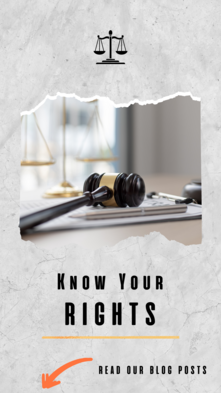Bail is a legal term that refers to the release of a person who has been arrested or detained for an alleged crime, on the condition that he or she will appear before the court when required. Bail is a way of ensuring that the accused does not abscond from justice, and also respects the presumption of innocence until proven guilty.
Bail can be granted by the police or by the court, depending on the nature and severity of the offence. The Code of Criminal Procedure (CrPC), 1973, classifies offences into two categories: bailable and non-bailable. Bailable offences are those for which bail can be claimed as a matter of right by the accused, whereas non-bailable offences are those for which bail is granted at the discretion of the court, after considering various factors such as the gravity of the offence, the character, and antecedents of the accused, the possibility of tampering with evidence or witnesses, etc.
The CrPC also provides for different types of bail, such as regular bail, interim bail, and anticipatory bail. Regular bail is granted to a person who is already in custody after he or she applies to the court for release. Interim bail is granted for a short period of time, pending the final disposal of the bail application or the trial. Anticipatory bail is granted to a person who apprehends arrest for a non-bailable offence, before he or she is arrested.
The law of bail in India has evolved through various judicial pronouncements over the years. Some of the landmark judgments on bail are:
- Gurcharan Singh v. State (Delhi Administration), AIR 1978 SC 179: In this case, the Supreme Court laid down certain guidelines for granting or refusing bail in non-bailable offences. The Court held that while granting bail, the court should consider whether there are reasonable grounds for believing that the accused is guilty of an offence punishable with death or imprisonment for life; whether there are reasonable grounds for believing that he has been falsely implicated; whether he is likely to abscond or misuse his liberty; whether he has a criminal record or bad reputation; whether his release would create law and order problems; etc. The Court also held that while refusing bail, the court should record its reasons in writing.
- Gurbaksh Singh Sibbia v. State of Punjab, AIR 1980 SC 1632: In this case, the Supreme Court clarified the scope and ambit of Section 438 of CrPC, which deals with anticipatory bail. The Court held that anticipatory bail is not a blanket order of immunity from arrest, but only a direction to release the accused on bail in case of arrest. The Court also held that anticipatory bail can be granted for any offence, except those punishable with death or imprisonment for life; that it can be granted at any stage before arrest; that it can be granted by any High Court or Sessions Court having jurisdiction; that it can be granted for a limited duration or till the end of trial; that it can be subject to conditions imposed by the court; etc.
- State v. Capt. Jagjit Singh, AIR 1962 SC 253: In this case, the Supreme Court held that anticipatory bail can be canceled by the court if it is satisfied that it was obtained by fraud or misrepresentation; that there is a change in circumstances; that there is interference with investigation or administration of justice; that there is an abuse of liberty; etc.
- Anil Kumar v. M.K. Aiyappa, (2013) 10 SCC 705: In this case, the Supreme Court held that anticipatory bail can be extended beyond 60 days if no chargesheet is filed within that period; that anticipatory bail cannot be canceled merely because chargesheet has been filed; that anticipatory bail cannot be canceled without giving notice and opportunity of hearing to the accused; etc.
- Arnab Manoranjan Goswami v. State of Maharashtra & Ors., (2021) SCC Online SC 7: In this case, the Supreme Court reiterated the importance of personal liberty and freedom of speech and expression in a democracy, and held that courts should exercise their jurisdiction to uphold these rights while dealing with bail applications. The Court also held that courts should not be influenced by public opinion or media trial while deciding on bail; that courts should apply their mind independently and objectively while granting or refusing bail; that courts should not impose excessive or unreasonable conditions while granting bail; etc.
These are some of the notable judgments on bail in India that have shaped and refined the law on this subject. Bail is a crucial aspect of the criminal justice system.

